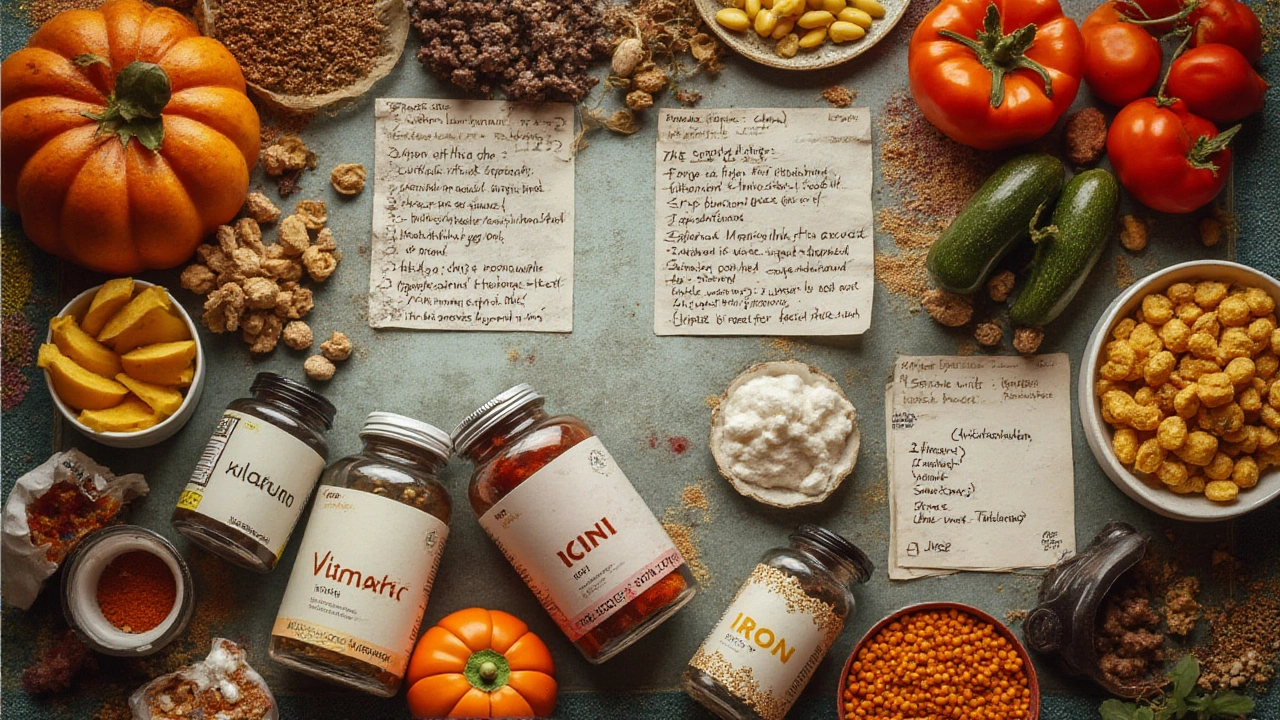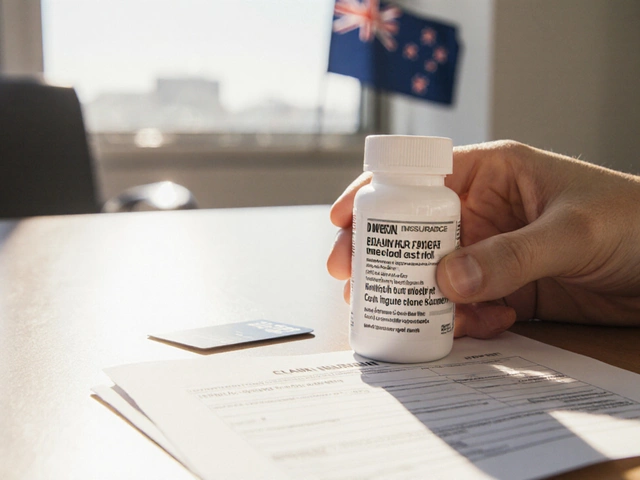
Walk into any pharmacy or health shop in Auckland (or anywhere, really), and the rows of supplements can feel endless. Powdered mushrooms, shiny omega-3 gels, neon pre-workouts, and unpronounceable herbs—they’re all vying to “boost” your life. But have you ever noticed that nearly everything on the shelf fits into just a handful of categories? In the maze of health claims and miracle fixes, understanding the core supplement types keeps you from falling for hype and helps you make decisions that actually work for your body, your needs, and your wallet. Here’s what separating fact from fiction truly looks like, straight from the world of nutrition science, with a nod to real, local habits and some hard stats you won’t find on just any bottle.
Vitamins and Minerals: Filling Nutritional Gaps
When most people think of supplements, vitamins usually pop into mind first. Vitamins (like A, C, D, E, and the B family) and minerals (like calcium, iron, and zinc) are straight-up crucial for your body. Our diets sometimes just don’t cut it, especially with busy workdays, eating on the go, and those occasional pies from the corner bakery. Cutting straight to the numbers, according to the New Zealand Health Survey 2023, at least 16% of adults admit they’re not getting enough fruit and vegetables. This missing nutrition is where multivitamins or specific mineral tablets can step in.
Most experts agree that it’s best to get what you need from whole foods. That plate of roast kumara and silverbeet will always trump a pill, but the reality is, most Kiwis simply aren’t hitting those daily veggie targets. Pregnant women might need extra folic acid, and older adults often fall short on vitamin D, especially given our sporadic sunlight down here in Auckland. Even strict vegetarians or those on extreme diets are at risk for shortfalls like vitamin B12.
Here’s a quick reality check table with some examples:
| Supplement | Main Reason Taken | Typical Dosage |
|---|---|---|
| Vitamin D | Low sunlight exposure, strong bones | 1,000-2,000 IU daily |
| Iron | Fix tiredness, common in women | 15-30 mg daily |
| Magnesium | Helps with stress, muscle cramps | 200-400 mg daily |
Watch out though—taking too much can be just as harmful as not getting enough. For example, too much vitamin A isn’t great for your liver, and mega-dosing vitamin C won’t make you immortal. A blood test and a chat to your GP or a registered nutritionist beat guesswork every time. The *strong* supplement for most? Good old vitamin D in winter, since studies in New Zealand routinely find about a third of us are running low as soon as daylight savings ends. So, before you buy, pinpoint what you actually need. Otherwise, you could literally pee your money away.
Protein and Amino Acids: Building Blocks for the Body
Let’s be honest, protein powder has become the unofficial mascot for gyms, yoga studios, and, these days, even office pantries. But protein supplements aren’t just for bodybuilders. We’re talking about everything from classic whey powder to plant-based blends with pea and rice, all designed to give your muscles what they need to recover, grow, and keep you full on those days when lunch consists of two boiled eggs and a coffee.
Your muscles, ligaments, skin, and organs—all need amino acids, the building blocks of protein. If you’re active, over 50, recovering from illness, or just struggling to get enough protein from your diet (looking at you, toast-for-breakfast crowd), supplements can help plug those gaps. It’s not just powders, either. Protein bars, ready-to-drink shakes, and even amino acid tabs have exploded in popularity since 2020, partly because people want anything that’s quick and convenient.
Research out of Otago University in 2023 found that about 23% of Kiwi adults use protein supplements at least once a week, and that number rockets past 50% for regular gym-goers under 30. But how much do you need? The Ministry of Health’s guide suggests around 0.8 grams per kg of bodyweight per day for adults, but if you’re training hard or older (when muscle-mass protection is key) you might be aiming closer to 1.2-1.5 grams/kg.
It’s easy to overthink it, but too much protein is just wasted—literally flushed out by your kidneys or, if you’re unlucky, stored as fat. Plus, a quick protein hit right after exercise (within about 30 minutes) really does improve muscle repair, and that’s not just marketing. For the eco-conscious or dairy-sensitive, pea and soy proteins are solid options, though they sometimes taste a bit, well, earthy. Tip: blend them with frozen berries or a spoon of cinnamon to mask that taste. If you want the best bang for your buck, study the label: all nine essential amino acids, low sugar, no mystery ingredients. Simple. The protein market is vast, but sticking to reputable brands with clear third-party testing info cuts out a lot of unnecessary risk.

Herbal and Botanical Supplements: Nature’s Remedies
Herbal supplements have been around forever—literally. Kūmarahou, kawakawa, and manuka aren’t just native to New Zealand; they’re part of a global boom in plant-based health products. These supplements range from ginseng and turmeric for energy and inflammation, to valerian root and passionflower pitched as natural sleep aids. Walk through Newmarket or even a Saturday farmer’s market, and you’ll see jars and tins promising everything from mental clarity to better digestion.
So do they work? Sometimes. For example, studies published in the New Zealand Medical Journal found evidence that St John’s Wort can ease mild depression (but shouldn’t be used with antidepressant meds—interactions can get dangerous). Turmeric’s active compound, curcumin, genuinely helps with mild arthritis pain, but it’s notoriously hard for your body to absorb unless taken with black pepper.
- Ginkgo biloba is among the most popular for memory support, though results can be hit or miss depending on the person and the extract’s quality.
- Saw palmetto gets marketed for men’s prostate health. While it’s been around for decades, recent findings are mixed—some users report benefit, others none at all.
- Green tea supplements boast antioxidant effects but drinking the tea itself usually brings better results and fewer risks.
- Traditional Māori herbs, like kawakawa, have a long track record in wound healing and digestive support, though clinical studies remain sparse.
Remember, ‘natural’ doesn’t always mean safe. Even botanicals can interact with prescription drugs or cause allergies. For instance, grapefruit extract can mess with heart meds and liver function. If you have any medical conditions (or are pregnant), speak to someone qualified before kicking off a new herbal routine. The upside? These supplements are a rich tradition worth exploring—just double-check what you’re buying and look for brands that play it straight with transparent labelling. Bonus tip: sometimes, the fresh herb from your backyard does a better job than any capsule.
Performance and Energy Boosters: The Edge Seekers
Pre-workout powders, caffeine pills, energy gels, creatine—these are the darlings of people who want a fast edge before a workout, at work, or even while gaming. Sales are booming, especially among young men and competitive athletes. So, let’s talk about the facts behind the flash.
Caffeine is king—no surprise. It sharpens your focus, lifts your alertness, and can squeeze extra reps out of a tired body (caffeine at 3 mg per kg of body weight delivers peak impact, according to the 2022 NZ Sports Performance Review). But add in taurine, guarana, or random “proprietary blends” and you’re buying a mystery that may not fully deliver. Energy drinks and pre-workout mixes can contain up to 300 mg of caffeine per serve, so always check your total intake or risk a jittery, racing-heart day.
Creatine monohydrate, though, has a mountain of evidence behind it. Used for decades, it boosts muscle mass, strength, and workout recovery. University of Auckland research shows about 20% of regular gym-goers in the city supplement with creatine year-round. There’s only one catch: some people just don’t respond to it, due to how their bodies process creatine, so you may see big gains or just… nothing. Side effects are mild and rare (think bloating), but it’s important to hydrate properly.
BCAAs (branched-chain amino acids) get hyped for recovery, but unless your protein intake’s already too low, they may offer little more than expensive flavour. Beta-alanine can boost workout tolerance, especially for high-intensity intervals, though it might leave a prickly, tingling sensation as a side effect. Nitrate-rich beetroot juice is the real MVP for endurance—top Kiwi rowers have credited it with better blood flow and less muscle fatigue, and it’s no placebo effect. Serious athletes rely on third-party batch-tested brands, as any contamination (even trace amounts) can risk a failed drug test.
If you’re considering anything in this category, honesty and moderation are your friends. Never take more than directed, and cycle off from time to time to keep your body’s responses sharp. And always read your body: if you feel weird or uncomfortable, it’s not worth pushing through for a short-lived gain.

Specialty Supplements: Targeting Specific Needs
This group is for everything else—the rising stars and niche picks tailored for specific health situations. Think probiotics for gut health, omega-3 for the brain and heart, joint supplements like glucosamine and chondroitin, and specialty blends targeting everything from sleep to skin.
Probiotics are a great example—these live bacteria can help balance your digestion, especially after antibiotics, stomach bugs, or periods of stress. University of Otago’s 2024 Nutrition Survey found that around 15% of New Zealanders buy some probiotic product each month (with Auckland leading the way), mostly through yoghurts, drinks, or capsules. Not all probiotics are equal, though. You need the right strain, in the right amount (usually at least 1 billion CFU per serve for any effect). Plus, these benefits often fade if you stop taking them, so don’t expect a permanent fix from a one-month trial.
Omega-3 fatty acids (from fish oil or algae-based supplements) have a solid track record for supporting heart health, joint flexibility, and, in some studies, even mood stability. For those who don’t eat much oily fish, a supplement can plug the gap. Beware of low-quality oils that go rancid fast—shield them from light and heat. For joint health, the evidence around glucosamine and chondroitin is mixed (some get relief, others see little difference), but they remain among the top sellers for older adults, especially those dealing with the aches and pains of life that don’t go away as you hit your thirties and beyond!
- Melatonin: Used for sleep and jet lag, melatonin is popular among shift workers and travellers, but quality can vary. Stick to the lowest effective dose—more isn’t better, and high doses can actually disrupt your body’s rhythm over time.
- CoQ10: Famous for energy and statin-users, CoQ10 levels can drop if you’re on cholesterol meds, but topping up may reduce muscle soreness.
- Collagen: Gaining love for healthy skin and joints. While evidence for wrinkle reduction is mostly modest, some report real improvements in joint comfort after a few months of steady use.
Bottom line: Those flashy Instagram blends that make huge claims probably aren’t magic. But if you’re chasing a precise health fix and pick a supplement with strong evidence, these tools can support you without replacing a balanced diet, regular movement, and the basics of good sleep.
The world of supplements is wildly colourful, sometimes confusing, and always evolving. Auckland’s shelves (online and off) fill up faster every year with brands from every continent. But if you stick to the fundamentals—filling gaps, using protein when you need it, only turning to herbs and performance boosters with a clear goal, and targeting your unique needs with specialty options—you’ll turn that supplement minefield into a toolkit. Smart choices, good info, and honest conversations with your healthcare team: that’s how you avoid the marketing fog and actually get the health edge you want.





